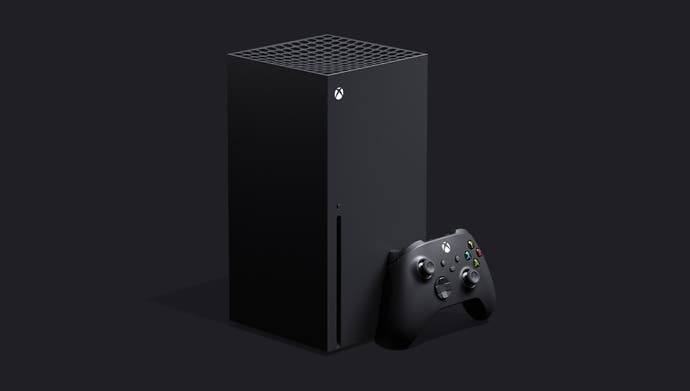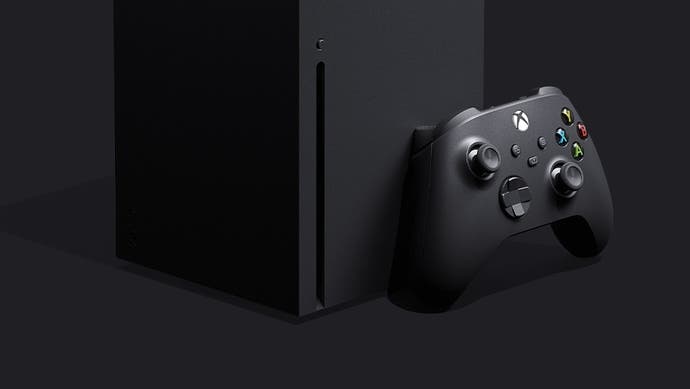Microsoft still hasn't made the case for Xbox Series X
Game Pass is another matter.
Let's get the obvious comparison out of the way, now that we can compare the summer's two great trailer showcases - separated this year by six weeks rather than the usual day and a half: Sony edged it.
Neither PlayStation nor Xbox delivered a slam dunk when making the software case for their new hardware launches this year. Stripped of the wheeler-dealing, jostle and theatricality whipped up by the industry's convergence on Los Angeles for E3 in a normal year, there was a sense of hesitancy about both showings, with many exclusive properties and first-party studios not ready to take the virtual stage, and most big third-party publishers declining to lend their weight to either side. We saw a lot of indie games - great for representing the true diversity of the medium, not so good as ammunition in a hype war. We didn't get a decisive megaton announcement from either.
Still, Sony was more convincing. It had, in Resident Evil Village, the patronage of one storied third-party franchise (just the one). It had a few arresting curveballs, like Ghostwire: Tokyo, Pragmata and Little Devil Inside, plus a spectacular remake of Demon's Souls for the gaming cognoscenti. The PlayStation Studios exclusives felt that little bit closer and more tangible than their Xbox counterparts, especially in the impressive gameplay footage of Ratchet & Clank: Rift Apart and Gran Turismo 7. It had a simple pitch: if you want to play these games, buy a PlayStation 5.
Astonishingly, we still can't be sure that we have seen a game running on Xbox Series X
Xbox's showcase last night was bookended by a gameplay demo of Halo Infinite - a very tangible prospect, to be fair, but one which you will be able to play on Xbox One and which was reportedly captured on PC - and a teaser reveal for a new Fable that, while cute, had little to add to the rumours of its existence that have circulated for years. Much of what filled the space between them was interesting, exciting or both, from the emotional lockdown trailer for Tetris Effect: Connected to the news that Fatshark was taking its trademark co-op chaos into the Warhammer 40K realm with Darktide. But most of it was frustratingly opaque. Stalker 2's debut trailer was, it turned out, target footage. Forza Motorsport was present as a graphics demo with an ominous note that it was "early in development". Rare's Everwild, on second showing, remained as mysterious as it is lovely to behold. Xbox Studios prospects State of Decay 3 and Avowed got CG teasers only. There was, overall, a striking lack of gameplay footage - and, astonishingly, we still can't be sure that we have seen a game running on Xbox Series X.
Nor can we be very sure whether we will need to buy an Xbox Series X to play games like Everwild, Forza and Avowed. That they will all get PC versions is no surprise. Microsoft has previously stated that it will continue to support Xbox One with first-party releases for a year or two after Series X launches - a controversial but clearly articulated strategy about playing to the widest possible audience rather than forcing generational change. Yet, when push came to shove, the company didn't seem willing to promise anything beyond Halo would actually get an Xbox One version, and a follow-up tweet from Xbox marketer Aaron Greenberg passed the buck to studios rather than settle the matter. It's possible that most of these titles are bound for 2022 or later, after Xbox One has naturally passed away, but that would hardly be good news for Xbox fans.
Bearing in mind Halo Infinite's underwhelming looks, all of a sudden Xbox's pro-cross-gen stance sounds less like a strategy than like a rationale to explain away a last-gen game that got itself delayed into the launch window for the next console, and thus had to release on both - Zelda: Breath of the Wild style. (To be fair, we should note that PlayStation 5's launch game, Spider-man: Miles Morales, is an update and extension of a PS4 hit. Maybe you just can't launch with a proper generational exclusive in 2020.) But then, this view doesn't square with developer 343's assertion to IGN that Halo Infinite is a "platform for the future" that should last 10 years without getting a traditional sequel.
It is hard to believe that, as a new console generation approaches, Microsoft is once again fluffing its lines. The hardware reveal went well - unsurprisingly, since it had been so carefully rehearsed with Xbox One X a couple of years previously. But we have yet to see anything that shows those impressive stats in action, and corporate strategy seems once again to be getting in the way of what players want to see and hear.

If Microsoft isn't persuading us to buy consoles and games, that's because it doesn't really want to
This is not to say that the nightmare of 2013's Xbox One launch is about to be repeated. Then, a fuzzy Trojan-horse strategy about media convergence and owning the living room seemed to have little to do with video games. Now, Microsoft's vision for the future gaming is both far-sighted and persuasive, with its emphasis on streaming technology, device agnosticism and reaching the largest possible addressable audience.
If Satya Nadella's company isn't doing well at persuading us to buy consoles and games, that's probably because it doesn't really want to. What it wants to sell us is Game Pass subscriptions. Viewed as a pitch for a couple of years' worth of an entertainment service at 10 dollars a month, rather than as a pitch for a 500-dollar piece of consumer electronics, yesterday's showcase was far more effective: a broad range of enticing games that don't need to blow us away in the here and now if we can check them out at our leisure in future. With the streaming service xCloud to be included in Game Pass Ultimate subs, the matter of which boxes these games will be playable on also becomes a potential moot point. Microsoft is playing a different game altogether to Sony, and it would be a mistake to judge its performance on the standards of a decades-old PR war that, at the highest level, its executives probably consider a strategically irrelevant and rather old-fashioned sideshow.
And yet, 2013 still has an important lesson to teach us. Microsoft fluffed it so hard then because it thought a pitch to the core gaming audience no longer mattered. It was wrong. This audience of tastemakers is still the hub the wider gaming community revolves around, and it really matters what excites them - what excites us. If your games don't thrill us, if your pitch seems driven by theory rather than passion, you are in trouble. Xbox still has work to do.


